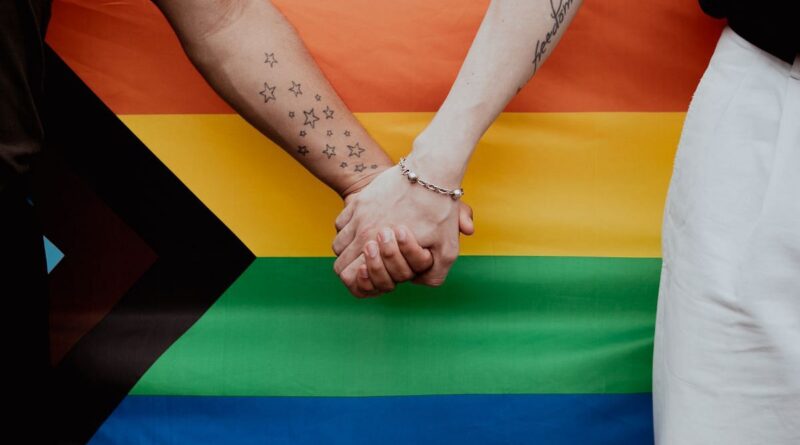SC says individual can adopt child regardless of marital status
NEW DELHI: The 5-judge Constitution Bench of the Supreme Court on Wednesday said an individual can adopt a child irrespective of marital status while hearing the petitions on the same-sex marriages on the ninth day.
In view of two major judgments on Thursday, the Bench will resume the hearing on the tenth day on Thursday only from 12 noon, Chief Justice D Y Chandrachud announced while letting the hearing remain inconclusive on
Wednesday.
In its submission to the apex court, which is hearing pleas seeking legal validation for same-sex marriages, child rights body NCPCR argued that the concept of gender may be fluid but not mother and motherhood.
Highlighting the legal position in different statutes that the welfare of a child is paramount, the National Commission for Protection of Child Rights told the bench headed by Chief Justice D Y Chandrachud that it hs been held in several judgments that adoption of a child is not a fundamental right.
The CJI said there is no compulsion to have biological children and that is why our law envisages that beyond the realm of a couple having a child, adoption is away, what if a mother passes away, the father takes on both the duties.
He went on further to state: “If a couple wants to adopt our law only recognises the right to adopt only if you are in a heterosexual marriage, what we are asking is nonetheless law recognises the right of a single to adopt, your position is right of a single is not affected by the relation the person has whether heterosexual or same-sex so long as you are adopting as a single individual an individual in same-sex relation is not precluded from adoption we take it as CARA’s statement.”
In his rejoinder arguments, senior advocate Abhishek Manu Singhvi said there is a value judgment in all cases and asked was Navtej not a value judgment?
Justice Bhat: In Navtej, the court was within its constitutional bounds.
CJI: So basically, your argument is that any notion of marriage as a social institution which excludes same-sex couples would be violative of the Constitution preset. Their argument is that marriage is conventionally understood as a heterosexual union.
Singhvi: Classification which is invalid becomes valid by your Lordships reading spouse person everywhere. After 75 years of Independence we cannot say these couples are less in number.
Solicitor General Tushar Mehta said Rajasthan has opposed the same-sex marriages while six other states have sought time to examine. They are: Manipur, AP, Uttar Pradesh, Maharashtra, Assam, and Sikkim.
“Any declaration issued from this court shall be binding on the whole nation. We knew about the judgment in baker’s case where he refused to bake a cake in a same-sex marriage case and he was prosecuted and then a pastor refused to solemnise it and they had to bring a pastor protection act.”
“Suppose this court brings a declaration and suppose a couple goes to a priest and he refuses to solemnise the marriage as they are the same sex, would the priest not be in contempt?”
“Under Article 21 right to marry is a universal right but it is not a fundamental right. India is a nation still fighting for basic girl child rights. In a parent-teaching meeting, how will a child react to someone having same-sex parents?” Advocate Sanjeevni Agarwal said while opposing the batch of petitions seeking recognition of same-sex marriages.
Advocate Sasmit Patra, Odisha’s Biju Janata Dal MP submits: “Parliament has the functionality to deal with this. 42 laws that will be affected. 182 amendments and 19 ministries are involved. Please see the Jan Vishwas Bill 2022… Without personal laws in the ambit, this issue of same-sex marriage cannot be taken up. A joint parliamentary committee can decide on it.
“Role of polity is the second. Parliament has the sole jurisdiction to deal with this matter which has huge implications. Impact on public policy is huge and send it to parliament.”
GUJARAT LAWYER OPPOSES: “Any alterations will lead to a huge social impact. Marriage has very serious consequences. This court is examining the edifice of a social institution and a myriad of marital statutes. It is an entire regime which is regulated, all of this is based on heteronormative relation,” Senior Advocate Manisha Lavkumar, opposing the batch of petitions seeking to legalise same-sex marriage said.
Additional Solicitor General Aiswarya Bhati, appearing for NCPCR, said: “There is a basic structure of marriage between man and woman and second is on gender fluidity is impermissible. I have given examples where the space allocated for women- washroom, recruitments and so much more. It is a critical aspect. The welfare of the child is sacrosanct,” she said.
“A child has the right to be born and raised by biological parents. All children are naturally born to heterosexual couples only. The only sacrosanct right is of a child which is paramount,” she said.
She said: Children need love and protection. If a spouse is read in the Special Marriage Act, children will suffer the most, it cannot even be fathomed, but they will suffer, the entire architecture of this court’s judgment and statutes has been from the prism of the child and no one else. A single man and a single woman have no rights. A single man cannot adopt a girl child. This is how the law was crafted. There are 30,000 registered parents and we have just 1500 children available for adoption. They are in the pool.
In the last few weeks, the Supreme Court has been hearing petitions praying for marriage equality, and arguments emphasising the importance of marriage as a gateway to a whole ‘bouquet of rights’. The social pedestal occupied by marriage is in fact a key reason for the petitioners to seek marriage equality.
In the twenty petitions the Court has taken up for hearing, all of them pray for marriage equality, albeit under various legislations. However, alongside marriage equality some petitions seek legal recognition for families of choice that lie outside the bounds of marriage. In doing so, these petitions challenge the centrality of marriage to define family and raise important questions about relational equality under the law.
(To receive our E-paper on WhatsApp daily, please click here. To receive it on Telegram, please click here. We permit sharing of the paper’s PDF on WhatsApp and other social media platforms.)




